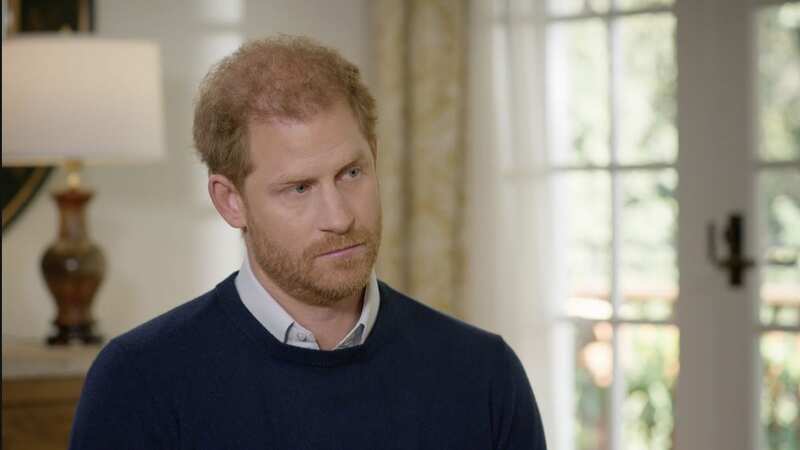Prince Harry's U-turn on the 'royal racist' after Meghan's bombshell allegations

Harry and Meghan levied major accusations against the Royal Family in their interview with Oprah Winfrey in 2019, and have continued to do so ever since with the release of the Harry's memoir Spare and the couple's bombshell Netflix show.
The interview was watched by nearly 50 million people worldwide as people were captivated by the Sussexes' account. One allegation in particular sent shockwaves across the UK, that a member of the Royal Family had raised "concerns" over how dark Archie's skin colour would be while Meghan was pregnant with him.
In the moment watched and dissected by millions, Oprah asked Meghan "Because they were concerned that if he were too brown, that that would be a problem? Are you saying that?" To which Meghan replied: "I wasn't able to follow up with why, but that — if that's the assumption you're making, I think that feels like a pretty safe one".
While the Sussexes put on a united front to discuss the important issue with the TV legend, Harry's account appeared to shift later down the line.
Earlier the year, the Duke undertook a publicity tour for his memoir Spare. In one interview, with ITV's Tom Bradby, he seemingly made a U-turn on the initial allegation and denied that he or his wife had ever accused his family of racism.
 Greggs, Costa & Pret coffees have 'huge differences in caffeine', says report
Greggs, Costa & Pret coffees have 'huge differences in caffeine', says report
Instead, Harry drew a distinction between explicit racism and unconscious bias and stated that having grown up in the House of Windsor, he would accuse his family of the latter, but not of being racists.
However, he also noted that once a bias is challenged and pointed out - if the behaviour in question continues then it could be defined as racist. "Once it's been acknowledged or pointed out to you as an individual, otherwise an institution, that you have unconscious bias, you therefore have an opportunity to learn and grow from that... otherwise, unconscious bias then moves into the category of racism," Harry said.
He gave the scandal involving a senior household member - Lady Susan Hussey - and a charity executive, Ngozi Fulani as being another example of the institution's unconscious bias. "What happened to Ngozi Fulani is a very good example of the environment within the institution," he said.
Harry didn't hesitate to point out that both he and his wife are very fond of Lady Susan, adding: "We think she's great. I also know that she never meant any harm at all". The blame for both incidents being defined as racist, he, said lay at the door of the British press.
Regarding the allegations made in the Oprah interview, the Duke of Sussex pointed out that Meghan had never used the word racist, but the press coverage had. Bradby asked if Harry perceived "troubling comments" about Archie's skin as "essentially racist" - and Harry clarified that he wouldn't in the context of knowing his family.
A new book, Endgame by Omid Scobie, has claimed that it was not one royal who made the comments about Archie's skin tone, but two - however the author didn't reveal who the two individuals are, citing that British law prevents him from doing so.
When the Sussexes made their explosive allegations on Oprah, in an interview broadcast around the world, they set in train a public debate about who in the royal family might harbour such racially charged views. In a multicultural modern Britain such allegations against the monarchy generated debate on a matter of such public importance with Scobie's new book claiming to add to that public debate.
Read more similar news:
Comments:
comments powered by Disqus

































